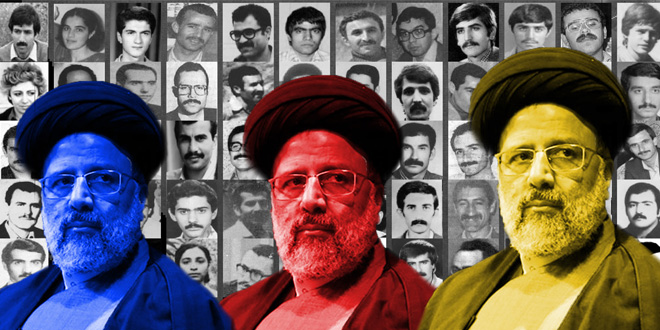
We begin tonight’s edition of A Window to the Fatherland with Dr. Alireza Nourizadeh reading one of his poems from the book of his collected works.
Read More »
We begin tonight’s edition of A Window to the Fatherland with Dr. Alireza Nourizadeh reading one of his poems from the book of his collected works.
Read More »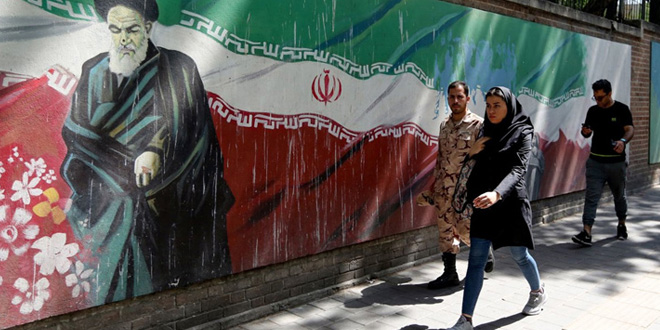
We begin tonight’s edition of A Window to the Fatherland with Dr. Alireza Nourizadeh reading one of his poems from the book of his collected works.
Read More »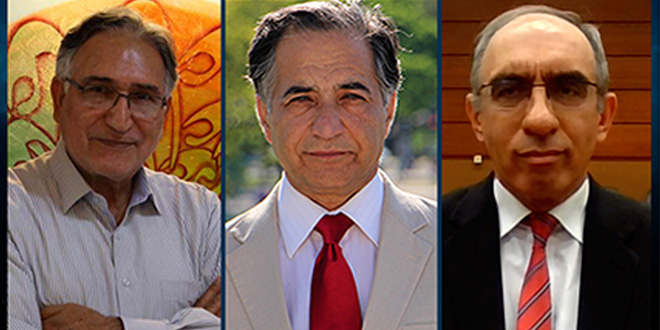
In tonight’s program we will discuss the implications of the political statement by 14 Iranian opposition figures and human rights activists for the freedom movement in the country as well as the regime’s reaction to it.
Read More »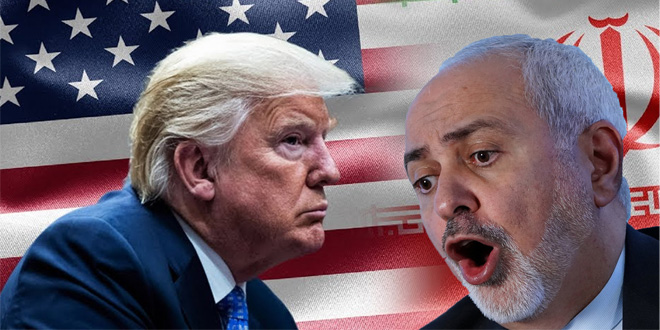
We begin tonight’s edition of A Window to the Fatherland with Dr. Alireza Nourizadeh reading one of his poems from the book of his collected works.
Read More »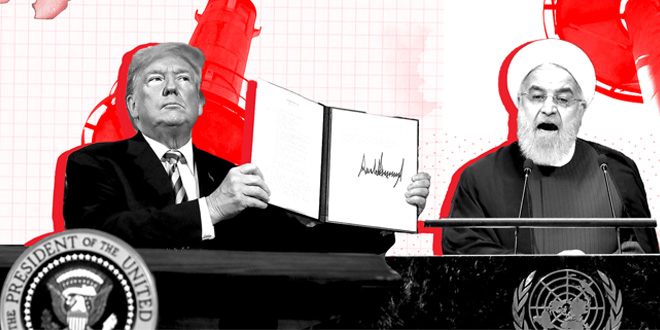
We begin tonight’s edition of A Window to the Fatherland with Dr. Alireza Nourizadeh reading one of his poems from the book of his collected works.
Read More »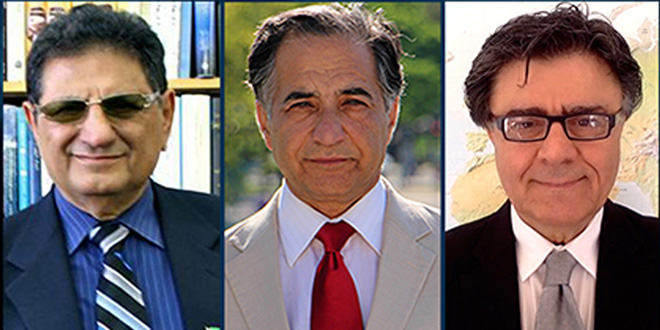
In tonight’s program we will look at the continued tension between Iran and US and find out what effects the US sanctions on the office of Khamenei and his representatives in America and Canada will have.
The Iranian regime says why should some other countries of the Middle East have an atomic bomb but it is barred from having one.
At the end of tonight’s program we will look at the latest gathering of the OPEC countries and find out if Iran still has any real voice within the organisation as the Russians and the Saudis seem to have joined forces to dominate it.
Our guests to discuss these issues tonight are the publisher Bijan Khalili in Los Angeles and human rights activist Afshin Afshin-Jam in Toronto.
Bijan Khalili:
We must accept the fact that the five main powers of the world possess the nuclear bomb and would not allow any other country to have it. They have agreed among themselves that they should not allow any other country to get involved in a race to obtain this bomb and it appears that the rest of the world have conceded to this unwritten agreement.
So, whether we like it or not we must accept this rule. However, the Iranian regime seems to have attempted to change the rules of this game in international relations and for more than three decades it was after arming itself with a nuclear bomb as a deterrentforce.
Should it have succeeded in achieving it then a very dangerous race would have started in the Middle East, which is already fraught with wars and tensions.
And in the process the regime has wasted huge amount of Iran’s wealth and resources for a failed project and has made our country the target of military threats. In addition, the regime’s nuclear ambitions have brought untold miseries and sufferings for our people through international sanctions.
Its president, Ahmadinejad, had even quite happily said that the world can put as many sanctions on Iran asthey want and he does not give a damn to them!
But finally the regime succumbed to international pressure and signed the nuclear deal 10 years after it could have done so with gaining more advantages for our country from the Western powers.
Afshin Afshin-Jam:
The regime’s tricks and hypocrisy have now become known to the international community and even when Khameneisays that he opposes the nuclear bomb and has banned it no one seems to believe him because at the same time the regime still insists on destruction of thestate of Israel and this can only mean that annihilating other nations with a weapon that is not conventional.
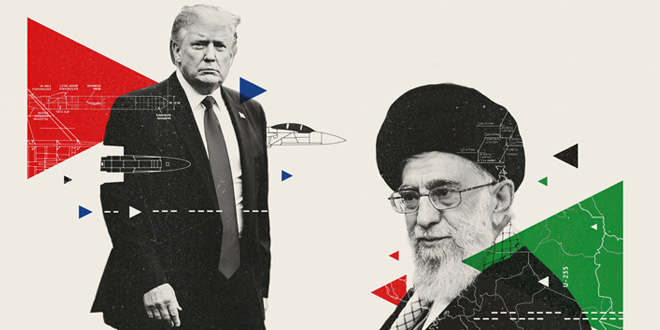
We begin tonight’s edition of A Window to the Fatherland with Dr. Alireza Nourizadeh reading one of his poems from the book of his collected works.
Read More »
By Ardeshir Zahedi and Ali Vaez June 20, 2019
Ardeshir Zahedi is Iran’s former foreign minister (1966-1971) and ambassador to England (1962-1966) and United States (1960-1962 and 1973-1979). Ali Vaez is the International Crisis Group’s Iran project director, based in Washington.
We belong to two very different generations of Iranians. One of us served in senior official positions in the pro-Western monarchy that ruled Iran prior to the 1979 Islamic revolution; the other is a child of that revolution. One presided over the golden age of Iran-U.S. relations; the other was subject to years of state-sponsored anti-American indoctrination. Yet, despite these differences, we share a sense of belonging to both countries and grave concerns about the collision course they are on.
The Trump administration seems to believe it can achieve what has eluded its predecessors for four decades: fundamental change in Tehran. It has resorted to a time-worn set of tools to attain this objective: strangling the Iranian economy through sanctions, destabilizing Iran by supporting dissidents and secessionists, and launching an information war against the leadership in Tehran. It appears convinced that exercising what it calls “maximum pressure” will cause Iranian capitulation or regime collapse.
The Iranian people, meanwhile, strive for democracy as they have for more than a century, amid growing discontent over endemic corruption, repression and environmental degradation. They deserve a government that respects their rights, preserves their dignity, and offers them peace and a chance at prosperity. Washington’s belligerence, however, could once again bring their democratic struggle to grief. This is for several reasons.
First, the Trump administration has very little credibility as the would-be standard-bearer of positive change. Its rhetoric promising to “crush” Iran or usher in “the official end of Iran” through military action belies its professed distinction between the leadership and the Iranian people.
The administration’s list of public missteps toward the Iranian people is as long as it is regrettable. It includes preventing almost all Iranians from visiting the United States; misstatingthe historic name of the Persian Gulf; failing to express sympathy with Iranians after terrorist attacks by the Islamic State and separatist groups; and, perhaps most consequentially, withdrawing from the nuclear deal that remains popular in Iran and to which many there had pinned their hopes for a better life.
These mistakes have helped transform top-down anti-Americanism in Iran into a bottom-up phenomenon. Nothing spurs a rally-around-the-flag effect among 83 million Iranians more than humiliation and threats of foreign aggression.
How can Iranians buy into the administration’s professions of positive intent when Washington selectively decries their leaders’ corruption and human rights violations while overlooking the same behavior among U.S. allies? Why didn’t President Trump ask his North Korean or Russian counterparts to fundamentally reorient their policies before he would engage them in fruitless pageantry?
The administration’s Iran policy is not a strategy. It is a pressure tactic wrapped in bellicosity folded inside a chimera. It is bereft of a viable vision and based on the naive assumption that overthrowing the Islamic republic will miraculously lead to a pluralistic and pro-American order. That previous U.S.-sponsored regime change in the region has ushered in failed states or worse autocracies seems to be an afterthought.
Even when the administration seems to vie for rapprochement, it is unconvincingly inconsistent. Secretary of State Mike Pompeo says, “We are prepared to engage in a conversation [with Iran] with no preconditions,” but in the same news conference , he goes on to say that would happen only “when the Iranians can prove that they want to behave like a normal nation.” This kind of double-speak and condescension does not instill trust.
The suffocating sanctions that the United States is slapping unilaterally on Iran have pushed the country into a deep inflationary recession, impoverishing its middle class and enriching state-affiliated actors, especially men with guns and experience in circumventing restrictions. This could lead to one of two outcomes: a weakened Iranian society, in which making ends meet will overshadow any quest for liberty; or a blind, desperate revolt that ends either in a brutal crackdown or a bloody civil war.
Either scenario will leave behind a broken, radicalized and militarized Iran, perhaps entrenching the Islamic republic’s most hard-line elements. How does that temper Iran’s behavior? How is that in the United States’ interest?
Bullying and crude threats will achieve little beyond entangling the United States and the region in another senseless war while deepening the two countries’ 40-year estrangement. The United States should strive for an Iran that is stable with a strong middle class and highly educated youths connected to the moderating influence of the outside world. The Iranian people want to restore the friendship between Iran and the United States, two countries that enjoyed 123 years of cordial ties before 1979. But the path to their hearts and minds is not through sanctions and military intervention.
It is not too late for this administration to cease demonizing and threatening Iran, and step aside from its maximalist demands. One of Iran’s most renowned poets, Rumi, offers a better way forward: “Out beyond ideas of wrong-doing and right-doing, there is a field. I’ll meet you there.”

Professor Shahrbanou Tadjbakhsh’s remarks at the second international symposium of “Herat School of Security”
From security from above to security from below
We are witnessing an unsettling amount of tensions at the global level, in our region, our state and our societies, and ultimately in our families and communities. We gather in various conferences to seek solutions about what factors can bring security and how peace can be brought to our lands and our homes.
All these ‘conditionalities’ for peace in Afghanistan have one thing in common: they treat the peace project as something exogenous to Afghans, as if it were a gift that could be brought, or taken away, by external actors, i.e. the Americans, neighboring countries, Daesh, drug networks etc. or by institutions, i.e. the army, the police, the state, the international community etc.
But a number of questions come to mind: Why do we seek the source of peace outside of ourselves? Why do we expect security to be provided by institutions and by external factors when we refuse to see the violence in our society, our families and in our own hearts? What is our own contribution, starting from making peace with ourselves and in ourselves? It is obvious that a new security paradigm is necessary, one that does not descend upon us from the international system, down to the region, down to the state, but one that springs up from us, and more precisely, from our hearts.
A partial answer was given in 1994 when the concept of Human Security was coined in the UNDP Human Development Report. It followed the assumption that in some circumstances the state is unwilling or unable to provide security for its people, and by consequence, uphold its social contract to protect its citizens. Hence, the concept of human security reminds us that the security of the state is not an end in itself, but a means to the security of individuals. The state is responsible not just to protect its territory from other states, but also to ensure the survival, livelihoods and dignity of its citizens.
Yet, even this concept of human security is not enough to guide personal behavior in a way that individuals, me and you, can contribute to creating peace from below, from within society. It is high time to develop an alternative concept of security based on values of humanity and empathy, a security that is not only ‘human’ (Ensan Mehvar) but also ‘humane’ (ba shafaghat, Rahim).
A security paradigm to tackle the crisis of violence
Why do we consistently seek the foreign sources of political and financial support to the creation and sustaining of violent extremist groups such as Daesh, but tend to ignore what should be done to defeat the phenomenon of ‘Daeshism’, a metaphor for radicalization, that has domestic and local roots? The problem of insecurity in the region starts with the problem of violence – and tolerance for violence – in society.
Rethinking the concept of security is necessary to tackle an unprecedented crisis of violence that we are witnessing everywhere, in our families, in our television sets, etc. It suffices to see the extremely violent video games that children are playing to understand the immunity to violence that has been cultivated in our societies. Recall the images of the cubs of caliphate, the little 10 year old boys that were groomed as the next generation fighters by ISIS in Syria, shooting at point blank their Kurdish prisoners. Did you see the ISIS father who proudly posted a picture of his child holding the head of a female Peshmerga fighter by her long braid?
It is easy to blame radicalization and violent extremism on manipulations by external interest groups and states. But how can we explain what draws people to such violent groups as Daesh? Between 3000 to 5000 people from the Central Asian republics left to join ISIS at the height of their power in territories they controlled in Syria and Iraq. Even if 80 percent were actually recruited while they were migrant workers in Russia, even if monetary incentives may have played a role, and even if they believed that they would be contributing to state building and not fighting, there is no denying that they left having already seen on TV and heard about the atrocities that this ultra violent group was committing. What explains this preponderance to violence if not a crisis of identity, a lacunae of morality, a different type of value on life and understanding of violence.
Forgotten Islam
As Ostad Akbar (RIP) mentioned during the 2015 conference as his last public appearance before his demise a week later, the messages of Islam, and the principles of Islam (Osoul-i Islami) have been forgotten. Today, religion has become an exercise in submission, figh and laws, Forgotten in the discourses of dogmas and restrictions, are the ethical doctrines of how to lead a moral, kind and compassionate life.
The harsh adaptation of Islamic principles, without the essence of love, can lead to lack of proper thinking, a culture of exclusion and obedience: Those who follow the dogmas and the others. It leads to sectarianism, takfiri ideology which prescribes lack of tolerance for the other. If the culture of violence is widespread in the region, it is a manifestation of the crisis of values and spirituality in society. The true essence of religion, embodied in the ethic of doing good and loving God, has been silenced between two extremes: Fanatism and reactionary secularism.
Kindness
The vacuum of spirituality which is at the source of violence, is not only a problem of Muslim societies. The West is similarly undergoing a crisis of ideology, identity and philosophy. The roots of violence are the same everywhere: lack of knowledge about the self, decrease of kindness, affection, tenderness. Ultimately, the roots of violence lay in the death – or at least the deficit – of love. The remedy is what the French call “emerveillement”, a spiritual awakening and awareness of the healing power of love. If radicalization starts in the mind, it may perhaps be defeated with love that springs from the heart.
Closer to home, in our own Sufi tradition we would call it “kashf” (unveiling), awakening to the knowledge of the heart rather than of the intellect. Uncovering the heart in order to allow divine truths to pour into it. It is, simply put, the ultimate experience of falling in love. Hence, the esoteric facet of Islam, embodied in mystic traditions, has the potential to encourage the development of a personal moral code of conduct that can be transmitted in society as a practical remedy against extremism and violence. In sum, reviving spiritual values in society is proposed as a panacea to the vacuum and lacunae of morality that is being manifested in violence in society. Unveiling love (kashf e eshq) can be, and should be, a down-to-earth principle of compassionate relations between people, based on kindness, dignity and empathy, a guide to behavior that is arefaneh (mystical) and asheghaneh (loving) and an alternative to relations in society that are based on power.
Is Sufism the answer?
Five years ago, I proposed the renewal of spiritual values of the esoteric face of Islam, embodied in Sufism, as the basis of a new concept of humane security at the Herat Security Dialogues held by AISS. This because I believed that the tradition of Khorasani erfan, the Sufism that sprang out in this region and which had developed distinguished features from the school of mysticism that was found in centers closer to the caliphate, in Bagdad and in Basra, was an adept source for non-violence. The Sufism of Greater Khorasan approached the divine through acts of devotion, exaltation and love, as opposed to the sober rituals and observation that were the features of formal Islamic theology and shariat law. Humane security could draw its inspiration from the distinct culture of Persianate Sufism which cultivated the art of esthetics, expressed through poetry, moral etiquette (adab) coupled with service to others and chivalry as an ethical duty (javanmardi or Futuwat).
With such a heritage, reviving the values of Sufism seemed to be logical enough as an ethic of non-violence. In my mind, Khorasani Sufism held a great potential in developing a personal code of moral conduct based not on the fear of God and fear of transgression of rules, like in orthodox Islam, but of love of God that could be transmitted in society as a personal ethic of compassion, a practical remedy to extremism and violence.
But it was not as simple a proposition as it seemed. Both during the first Herat Security conference in 2015 and in subsequent discussions I held, the reaction to “Sufism” was not negligible.
During the conference of three years ago, a number of Afghan intellectuals debunked the return to the values of Islam as recidivism, criticizing it as an attempt to keep society backwards. They warned against a nostalgia or worship of the past (gozashteh parasti) or rojou be gozashteh especially a past that was not always peaceful. They associated reviving Sufi values with being anti-modern, and denying the forces of modernization and secularism. Instead, they encouraged efforts towards reviving wisdom (kherad) and creating a system based on aghl, logic and reasoning. They insisted on philosophy as a more suited theoretical and practical discipline towards the realization of “true happiness” in Afghanistan, that of enlightenment.
The philosophers sought to juxtapose reason (as a philosophy of the future which uses logic, facts, rationality and the intellect) and erfan, (which they saw as an ideology of the past, which embraces the unknown, the gnostic, intuition) etc. But philosophy without the sacred is not adapted for a peaceful, more humane world. While appeals to the brain may attract the more educated part of the population, the call to the heart definitely touches more people. Love speaks to all of us, while wisdom to only some of us.
Others preferred to seek answers to non-violence in the common culture, literature and history of the region. From the example of the non-violent actions of Ghaffar Khan Badshah (the Frontier Ghandi) to Rumi’s poems, the region is strife with cultural references and heroes that can be followed as ethical guidance (rahnamay akhlaghi). The literary heritage of the region, some argued, is rich enough to be used for any queries towards self-knowledge (khod shenasi) and becoming the perfect human (ensan kamel).
However, as Afghan society is deeply religious, and Central Asian societies are becoming increasingly so, values of non-violence ought to be sought within Islam. At a time when wrong and narrow interpretations of Islam in the hands of some irresponsible clerics are planting the seeds of intolerance and violence, the question is what could calm passions and bring back the essence of religion as a force of good in society. Reviving Sufi values and the love of God is not about replacing Islam but ensuring that the precepts of the essence of religion are respected and implemented.
A number of critiques were weary about the revival of Sufism as a new form of governance. Will neo-Sufism play a role in religious practices in society or will it interfere in politics? Will it be limited to creating a culture of non-violence or does it have ambitions as a new order or political system? This question bothered some participants who were questioning the legitimacy of the system of theocracy as a political model (like in Iran), and others who had mixed experience with the political role of Sufi groups in contemporary politics (like in Afghanistan). The answer of course would be any potential revival of Sufi values (arzeshhay erfani) is not for a new nezam (political order), but for akhlaq (morality) and tarbiat-e ensan (education and moral education of humanity).
Other criticisms endured: Some commentators were weary about reactionary escapism that Sufism seemed to prescribe from real world. They wondered whether the solution to confrontation of violence in society could be really be withdrawal from the world (tark-e donya or donya gorizi), forgetting that not all Sufi orders require withdrawal from society. In fact, orders such as the Naqshbandi require Khalwat dar Jamiat, the possibility to be within oneself in society. Adopting spirituality does not require tark-e-donya but integrating values of spirituality in daily life.
Towards a Humane Security
Developing and implementing the concept of Humane Security rests on the proposition to revive the values of Sufism and not its practices necessarily, which obviously depends on the different orders (tariqa/turuq). At the heart of these values, and common to all the different orders and interpretations, is the supremacy of love. By itself Sufism is about self-effacement. Humane security goes beyond the imperative to do to others what you want to be done to yourself, which is a utilitarian approach to human interactions. Instead, it is about selfless love for the other as the embodiment of the love of god on earth.
What are some of the humane Sufi values that could translate into an ethic of non-violence?
These values and acts are supposed to lead to a personal ethic that creates the necessary impetus – that energy of love –for thinking good, doing good and saying good (associated with the Zoroastrian maxim of pendare niq, kerdar and afkar-e niq, Humata, Hukhta, Huvarshta ). The personal ethic of becoming human (adam shodan, ensan boudan) then leads to humanism, and humanism to non-violence.
Where do we go from here?
Rethinking security by putting the values of love and non-violence in the heart of Asia, as Afghanistan had been called in the poems of Allama Muhammad Iqbal Lahore (d. 1938), could transform the region from a center of fundamentalism to a catalyzer for peace.
The concept of humane security ultimately softens politics by interjecting some soul (rouh) into rational calculations of security (Aql). It counters violence, hatred and, ultimately, male pride (ghorour mardaneh) with a feminine elegance subtlety (latofat zanona) coupled with a poetic sense (hes-e shaeranieh).
Assuming that such a goal is established, as to try to operationalize this concept in Afghanistan, what are the next steps?
One way would be to launch a nation wide project where young people are paired with figures of moral authority (elders, pirs, tribal leaders, etc.). Together, they would choose the messages of peace and tolerance from the religious and cultural heritage (pand-eh niagan) which can then be disseminated among youth using modern means of communication (social media, education system etc.).
Another way could be to launch a conversation, using media and social media, of what the concept of love means for different people (youth, scholars, practitioners, military officials, Taliban, bureaucrats, housewives, etc.). What does it mean to love? How can we become more generous, grateful, and forgiving? The idea would be to see how these and other values are internalized and strengthened, and how they advance the cause of non-violence and shape the sense of meaning and purpose. The idea would also be to show the similarities of experiences, inspirations and ultimately, hope for peace in society.
Opening up such conversations in society could start eventually a movement of consciousness towards the need to recreate security from below, based not on guns but on the protective and nurturing power of love.
Professor Shahrbanou Tadjbakhsh is member of AISS advisory board and Professor of Human Security at Sciences Po, Paris.
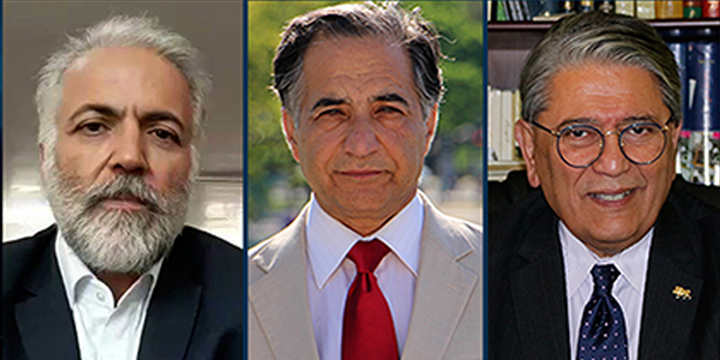
In tonight’s program we will look at the latest news of the continued tension between Iran and US as at the other side of the globe in Japan leaders of the G20 countries hold a conference on environment and farming issues, as well as discussing the current tension between Iran and US.
Read More »